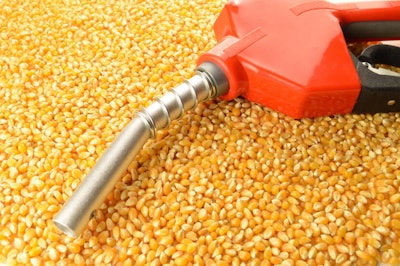
On Thursday, the U.S. Environmental Protection Agency (EPA) issued a multi-part three-year proposal to expand the U.S. biofuels policy with bigger volume mandates.
Under the plan, oil refiners will be required to add 20.82 billion gallons of biofuels to their fuel in 2023, 21.87 billion gallons in 2024 and 22.68 billion gallons in 2025.
“The Renewable Fuel Standard program is critical to helping incorporate more homegrown biofuels into the market,” said EPA Administrator Michael S. Regan.
Those volumes will include more than 15 billion gallons per year of conventional biofuels like corn-based ethanol, with the rest made up by advanced fuels like those made from switchgrass, animal fats or methane from dairy farms and landfills, reports Reuters.
"Long-term stability and a clear indication of obligations for the next three years are welcomed along with the potential of additional producers participating under the RFS," said American Farm Bureau President Zippy Duvall.
“Renewable fuels have been a tremendous success story for the country and our rural economy," continued Duvall. "The RFS has reduced America’s dependence on foreign crude oil, reduced greenhouse gas emissions, increased farm income and provided good-paying jobs in rural America.”
The National Corn Growers Association (NCGA) was also pleased with the EPA’s "forward-looking approach" of annual increases in the proposal.
“EPA clearly recognizes that renewable fuels like ethanol play a critical role in cutting greenhouse gas emissions, increasing U.S. energy independence and providing long-term relief to consumers at the pump," said NCGA President Tom Haag.
"With continued pressure on energy security and costs and the need to accelerate carbon emission reductions, biofuels can contribute even more, and we will make that case to EPA for the final volumes.”
ASA: Proposal 'dials back volume obligations'
Not everyone was happy with the recent announcement. The American Soybean Association (ASA) said the announcement is deeply disappointing for the biofuels industry and threatens the integrity of the RFS by significantly dialing back annual increases in volume obligations.
"Billions of dollars have gone into building and growing the infrastructure needed to support this industry," said Brad Doyle, ASA president and soy grower from Arkansas. "And our president has made a clear commitment to mitigating climate change and lowering greenhouse gas emissions — the very tenets of the RFS.
"This draft rule slams the brakes on progress being made in biofuels investment and growth," continued Doyle. "Instead of continuing to support available, low-emission plant-based fuel sources, EPA has changed course and seemingly is ignoring the major investments in and consumer demand for biomass-based diesel and other biofuels that exists right now."
ASA noted soy farmers were heartened by EPA’s 2022 volume target, which included the highest-ever number for total renewable fuels and specifically for biomass-based diesel (BBD) since the RFS was created, and were hopeful EPA would stay the course on a rising trajectory.
This year’s new set rulemaking process is the first in which Congress no longer specifies RFS volume targets, providing EPA more flexibility in the decision. Since 2013, however, EPA has been able to raise BBD requirements above the one billion gallon minimum set in statute.
This chart, said ASA, demonstrates the about-face EPA has made in terms of reaffirming its commitment to BBD. Even more, EPA has proposed halting any growth for advanced biofuels outside of BBD and cellulosic biofuels.
The multi-year set rule was intended to provide more certainty for the biofuels industry and encourage investment and innovation. ASA says these very insignificant volume increases for 2023-2025 realistically could not only stifle growth but also jeopardize the existing biofuels industry.
Electric vehicle pathway
For the first time, the EPA is also proposing new regulations governing the generation of qualifying renewable electricity made from renewable biomass that is used for transportation fuel in electric vehicles.
This would recognize the possibility that electric vehicles could be charged using power from the grid generated by biofuels like landfill or agricultural methane.
Bloomberg explained this may spur an overhaul that could shift the program from one narrowly focused on gasoline, diesel and other liquid fuels to an initiative broadly aimed at decarbonizing transportation.
EPA will be soliciting public comment on the proposed rule and holding a public hearing in January 2023.
















